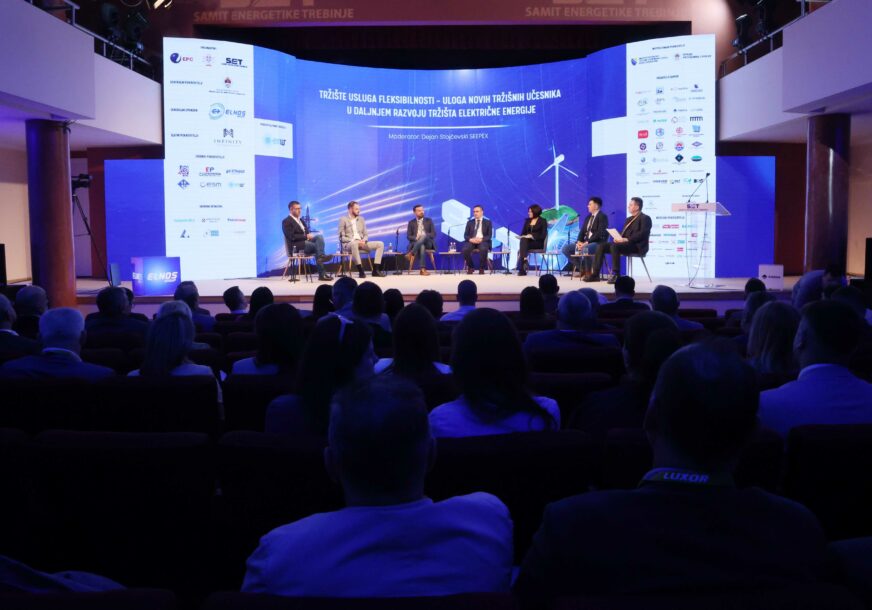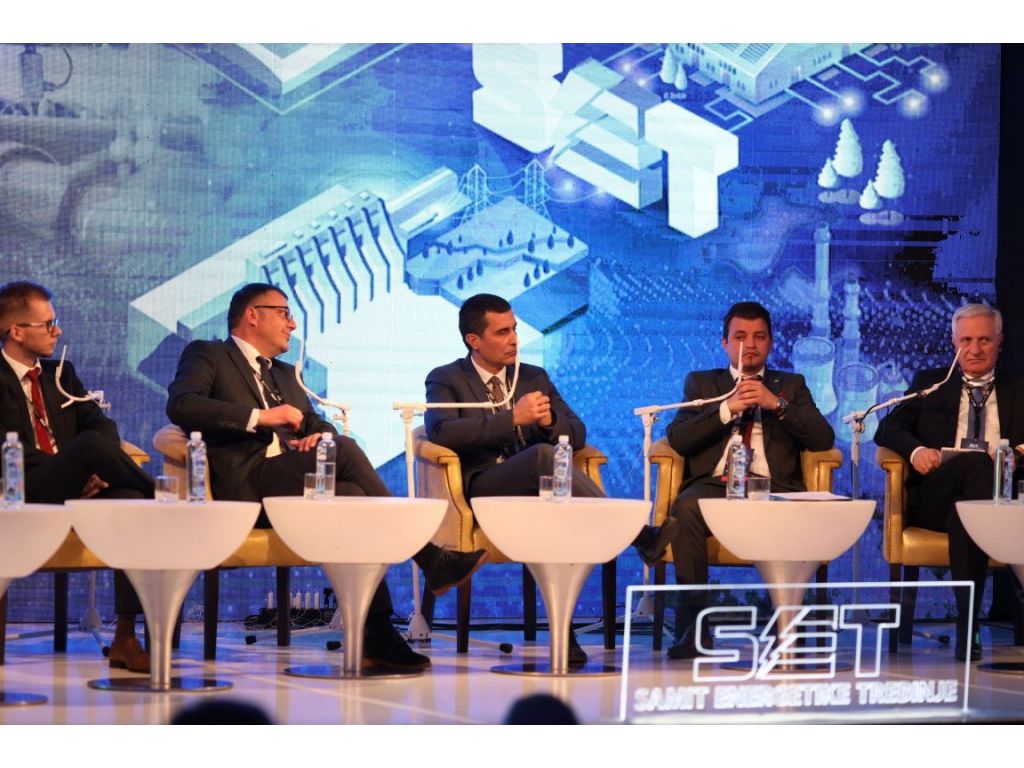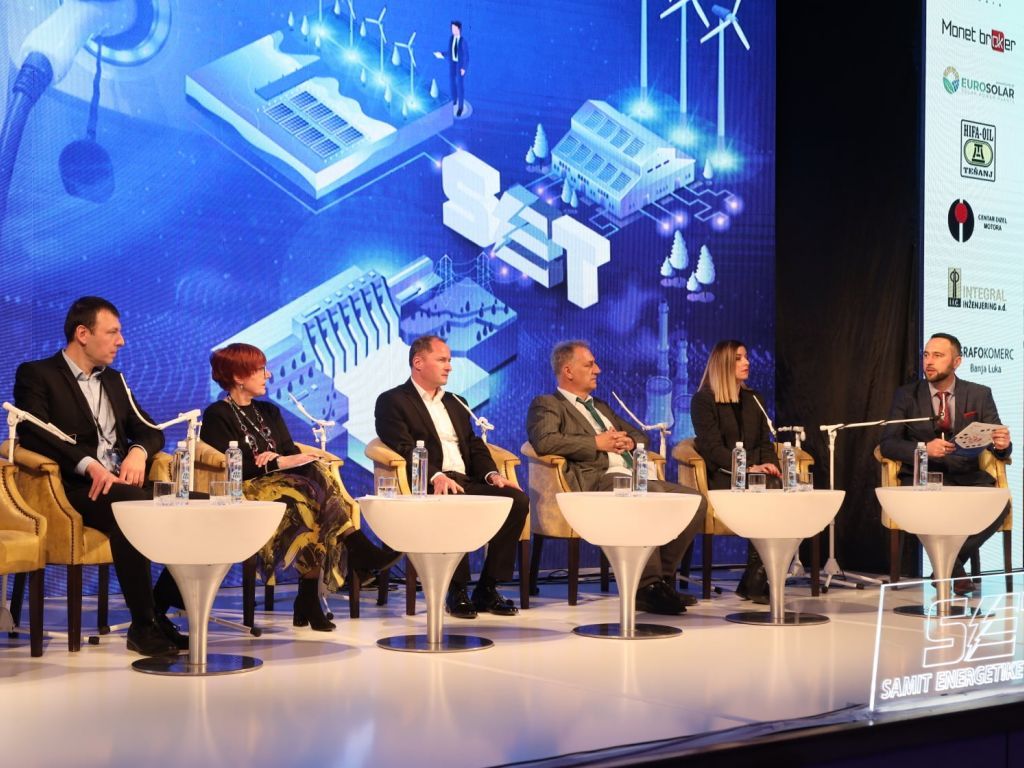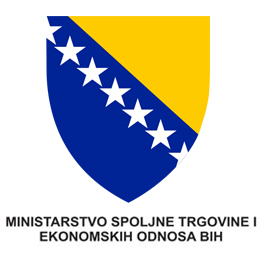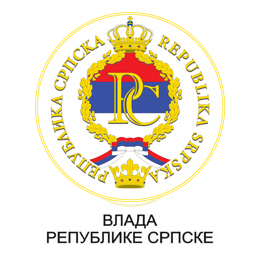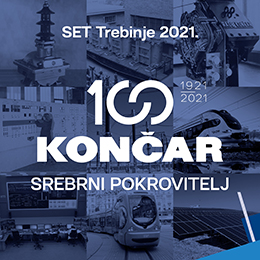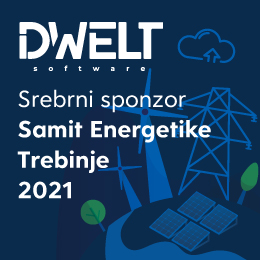Energy Transition an Opportunity for Energy Democracy – Main Topics of Trebinje Energy Sector
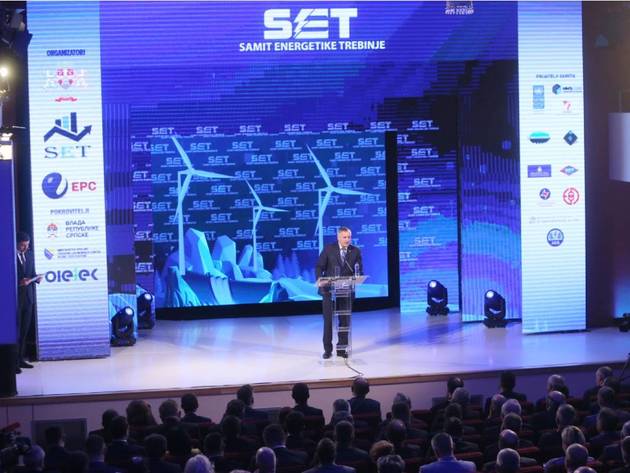
Trebinje is stepping up the preparations for the Energy Summit these days. Like last year, the most important names from the energy sector, representatives of state institutions, banks, chambers of commerce, professional associations, scientists and many companies, will once again gather in this city.
They will all share the most important messages and new features in the energy sector, the directives set before the countries of the region by the Energy Community, as well as the announcements of investments coming from individual states, with the participants in the summit.
We will hear about the details of the projects of renewable energy sources, how they will be financed, the climate plans of the countries of the Western Balkans, the activities in implementing energy efficiency in the public and the private sectors, but also the projects of introduction of district heating. As has been said in the past months, decarbonization and green energy will be the imperative of the energy strategies among the states.
As experts in this field told eKapija, this is a revolution which is already happening and it is clear that states need to be agile in order to get money for the projects, gather professional work force, incite certain faculties to educate the necessary staff and for all of them to be part of the energy revolution together, because, we will need electricity more than ever, and the stability of the supply is the first condition.
Ahead of the Summit, panel moderators are talking to eKapija: Slavko Krajcar, Ivan Perisa, Maja Pokrovac, Nihad Harbas, Bojan Bogdanovic, Marko Jankovic and Goran Racic.
A detailed list of the panels of the Trebinje Energy Summit 2021 and the participants can be seen HERE.
Professor Slavko Krajcar, the Faculty of Electrical Engineering and Computing at the University of Zagreb – Panel on Energy Strategies and Energy Climate Plans
– Since I was a participant in last year’s SET, listening to the topics then and especially the predominant topics and then looking at the planned participants in SET 21 and the planned topics, further examining the activities and titles in regional media, I can say that I am pleasantly surprised. I have therefore become quite an optimist when it comes to future events, which I may not have been last year. In fact, a bit of a quantum leap occurred here. Of course, it would be an exaggeration to ascribe all that to SET, but it is certain that SET has played a role in it. It simply seems that energy transition is on its way to “maturing” in the region as well.
We still have a lot of work ahead of us. Some countries in the region have more work ahead of them, some of them less. It is a range of policies that need to be adopted on the highest levels, all the way to the local ones. A new, stimulating, regulatory environment is needed. There are also decisions about the policies of support on national levels, market relations and market designing, and, no less important, creating a positive climate for investors and a positive climate for accepting technologies in a wider social community.
Let’s not forget that the “new energy system”, especially the electrical energy system, is becoming decentralized and giving an opportunity to each citizen to have an active role. Energy transition is also an opportunity for energy democracy, a whole new participative opportunity for everyone. True, energy democracy requires more from each one of us, and our region still needs to learn about all this.
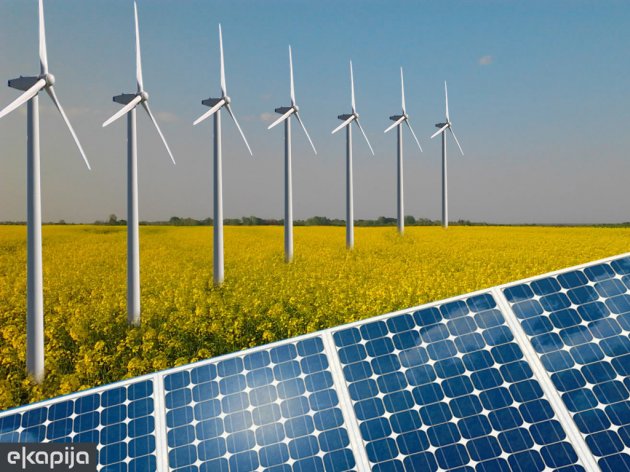
(Photo: Suzana Obradović)
The panel on energy strategies and energy climate plans is supposed to take place at the highest political level in the region. The panel will include Mr Janez Kopac of the Energy Community, ministers or state secretaries from all countries of the region. There are also representatives of international development agencies UNDP and USAID. The questions will be challenging, and I hope that the answers will contribute to a good energy transition.
What do we expect? We expect to get state-of-the-art in the public scene, but also plans for the future in individual countries, but also a kind of a “look from outside” toward the region.
At the panel, we will have three invited lectures as an introduction to certain parts of the panel. The first will be mine, followed by Janez Kopac of the Energy Community and Ognjen Markovic of the USAID. I expect a very good discussion, a quality exchange of opinions and useful conclusions.
Ivan Perisa, HEP ODS – Panel on Hybrid Energy Future
– One of the biggest challenges that the humankind is facing today is energy transition, or, more precisely, energy evolution. What are we talking about? The fact is that we have lit the whole world, but there are still areas which have no electric energy, and there are residents who want that. According to the IEA data, in the upcoming 30 years (by 2050), energy consumption will grow by 50%! If we take a look at this from the angle of energy companies, especially electric energy, it is in fact great news.
However, there’s bad news as well. The production of energy has a negative impact on the environment – harmful emissions from fossil fuels, the impact on the water through the cooling systems of power plants and so on. Despite all the measures taken in the world so far, aiming to reduce this impact, CO2 emissions in 2018 alone grew 2%!
So, the great challenge before us is how to secure all this energy to the benefit of everyone on the planet, in a way that has no negative impact on the environment.
When radical energy changes happened in the past, it led to a transformation of the existing (legacy) energy systems and, whenever there would be “energy difficulties”, the technology would always somehow be there to save the day. So, the technology will not only solve the problem, but also cause changes in the way the system functions. In fact, we are looking at a hybrid energy future!
In the upcoming period, hybrid energy solutions will be used which will combine two or more energy sources (traditional or renewable) or an energy storage system, and digitalization and new technologies will enable the functioning of the system as a whole, with an emphasis on the flexibility of the system. So, the near future entails an increasing intensity of the use of RES, with the focus on having classic energy source support the transition to RES, along with the role they’ve had so far in securing the stability.
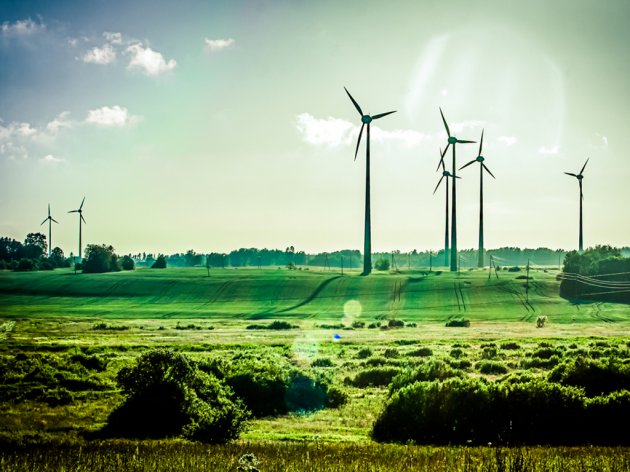
The panelists come from business entities important in electric energy, especially the digitalization of the energy sector.
Maja Pokrovac, Director of RES Croatia – Panel on Development of Potentials of Renewable Energy Sources and Integration of RES in the Electric Energy System
– This panel will provide a view to the current functioning of the RES systems in the region and provide insight into the dynamics of the progress of RES projects in the region and the further development plans. We will talk about sustainability barometers and public policies which created RES frameworks and make an overview of the existing regulatory, administrative and operating frameworks for the development of RES, as well as the needs for their improvement.
Also, the big possibilities of the “power to X” set of technologies for the integration of the electric energy system, heating and cooling, transport and industry, to the end of the integration of a high share of variable renewable sources, will be presented.
We will talk about the key question of the development of infrastructure which necessarily leads an increasing number of RES projects in the direction of investments to the end of the modernization of the electric energy system and identify the biggest challenges of the power network – whether they are technical in nature, or the problem is in the legislation.
We will inform the participants of the preliminary results of the study “The Analysis of the Key Obstacles and Suggestions for the Improvement of the Integration of Variable Renewable Energy Sources in Croatia”, which is the result of the cooperation of the EBRD and RES Croatia and is being prepared by the Faculty of Electrical Engineering and Computing and the Energy Institute “Hrvoje Pozar”.
Using examples of good practice, we will explain the contribution that the EBRD can give to the development of the transfer and distribution system in the countries of Southeast Europe.
Bojan Bogdanovic, Principal Fund Manager, Renewable District Energy at EBRD – Panel on Reform of District Heating Sector in the Region
– As someone who’s part of the EBRD, an institution which has been promoting a transition toward a green economy, and someone who has focused for years on increasing the share of renewable energy in the heating and cooling sector, I must say that the current trends in this field are extremely encouraging. The proof is that all countries of the Western Balkans signed the Sofia Declaration on the green agenda for the Western Balkans with the EU on November 10, 2020, whereby substantial financial support to the projects which increase the share of green energy is provided. At the same time, they thereby took upon themselves the obligation of taking very important concrete steps which will require considerable dedication and synergy of the activities of all interested parties (harmonization with the EU regulations in climate laws, preparation of NEAPs, harmonization with the EU Emissions Trading Scheme – a system of CO2 emissions trade, etc.).

International finance institutions play a very big role, because they can support the development of green projects in all phases – from mapping and overviewing a concept, to the preparation of studies, project documentation and the very implementation of the projects. To that end, the EBRD, with the support of the Government of Austria, has formed, and harmonized with the SECO, additional support to the Program for Renewable District Energy in the Western Balkans (ReDEWeB). The program aims to use donations and EBRD funds to support all the abovementioned phases, which are crucial to the improvement of the regulatory framework and the realization of concrete projects, which will considerably increase the share of renewable sources in district heating and cooling.
The panel will host relevant experts from all fields and institutions, such as: the competent ministries, state funds for environmental protection, district heating system associations, representative systems of district heating from the region and international organizations. With this capacity of the participants, the panel will be able to harmonize certain recommendations and come to conclusions which might help all the interested parties to contribute to the acceleration of the process of the modernization of the sector, an increase in energy efficiency and the share of renewable sources in the energy mix.
Nihad Harbas, Consultant at nLogic Sarajevo – Panel on Models, Conditions and Obstacles to Investments in the Energy Sector
– The trends in the transition of the energy sector of BiH and the region are the increasing investments in renewable energy, especially wind and solar energy. When it comes to wind energy, investments in big capital projects (of over 50 MW) are certain, whereas solar energy focuses on smaller (up to 1 MW) and larger capacities (50 MW). In the transition of the energy sector, citizens as prosumers will have a very important role, as well as energy cooperative and joint investments in RES projects, primarily solar power plants.
As transit fuels toward the climate neutrality of the region, natural gas will be used as well, primarily in the segment of heating energy and the industry. Coal, as a fossil fuel, has no perspective.
In a recent analysis carried out by the nLogic team, it was estimated that, in BiH, there was around USD 100 million worth of projects of energy efficiency, mostly in the public sector, but also in the residential and the industrial sectors.
According to the USAID data, the potentials in the residential sector alone amount to around 5 billion convertible marks, which means that we are only just beginning, because energy efficiency is the key foundation for the process of decarbonization of BiH. It is our deep conviction that energy efficiency is a development opportunity that our generations cannot afford to miss.
At the panel, we expect a representative of the Energy Community, as the key factor in getting closer to the EU in terms of energy, a representative of the state ministry of foreign trade, as an umbrella institution for the coordination and transfer of EU directives to the lower instances of authority and the key point of communication with the Energy Community. Also, we expect a representative of development banks from the world/EU, as one of the main providers of finances for the energy transition of BiH and representatives of commercial banks, direct participants in the process of financing the public and the private sectors in energy projects. Investors are also very important participants, as are the state regulator for electric energy and public power companies in BiH. The introduction to the wider context of the energy sector of the region will be presented by an international expert with years of experience in the region and investments in RES.
Goran Racic, Chamber of Commerce and Industry of Banjaluka Region – Panel on Construction of New Energy Capacities
– The discussion will focus on new investment cycles which the power systems of Bosnia and Herzegovina are looking at, as well as the construction of new energy capacities for the production of electrical energy from renewable sources.
The strategic goal of the capital investments of the power companies of our country and the countries of the region is a continuous increase of the production capacities based on renewable sources.
It is certain that the process of turning to green energy will be very challenging, but it is the path down which we definitely must go, regardless of the problems and the difficulties that await us there. I believe that the experiences of the countries from the region will help us overcome those challenges and achieve the end goal, which is decarbonization, that is, investments in energy based on the use of renewable sources – wind, solar power, but also biomass.
Along with this whole process that awaits us, it is necessary to ensure economic sustainability, energy independence and stability, as well as ecological acceptability of the electrical energy sector.
Holding a summit such as this one in Trebinje is certainly of great importance. On one hand, we have eminent experts from the field of energy, from whom we will get guidelines about what to do and how when it comes to the construction of new energy capacities. On the other hand, we have decision-makers and representatives of the authorities, who are supposed to put the conclusions reached at the summit into practice.
We expect this summit to provide us with guidelines as to how power companies in Bosnia and Herzegovina need to develop so as to abandon coal when it comes to the production of electrical energy by 2050.
It is of great importance to hear how countries in the region did it and what problems and obstacles they faced so as to strive to avoid them as much as possible and to switch to renewable energy sources in the production of electrical energy as soon as possible.
Marko Jankovic, Director of Market Division of EMS – Panel on Continuation of Liberalization of Electric Energy Market in Southeast Europe Region
– The market of electric energy has for a number of years been the most current topic in the field of energy, not just in the region, but in the entire Europe as well. The first phase – establishing national markets of electrical energy in line with the so-called “Third Energy Package” is more or less done in all the member-countries of the Energy Community.
At the moment, all the countries of the region are either preparing for or are already in the process of integration of the market processes in the regional and single European market of electrical energy. This primarily pertains to the connecting of organized markets of electrical energy (the so-called market coupling), as well as on establishing a regional and European balance market of electrical energy. Of course, in order for these topics to be processed, it is necessary to take a look at the state of these markets in BiH, that is, the countries of the region. One of the topics will be the recently completed deregulation of the energy sector on a distribution level in the Republic of Srpska, as well as the integration of distributive users in the market of electrical energy. The panel on the development of the market of electrical energy would not be complete if we were not to touch on the most current topic, which are RES, as an introduction to the topics that will be talked about in the panels that follow.
The first thing to be noted is that all the countries of the region, members of the Energy Community, have transposed the so-called “Third Energy Package” of the European Union into their legislatives. The electrical energy market in these countries developed at different paces and it can be said that, at the moment, the difference in the degree of development of the electrical energy markets in the countries of the region is at its lowest. However, if we are not talking individually about the market process or an individual country, but seeing things on a global level instead, the impression is that, at the moment, we are further behind the countries of the European Union than was the case five years ago.
Considering that the panel is designed to open the themes of integration of the national market, first into the regional and then into the European market of electrical energy, in addition to overviewing the state of the market of electrical energy in BiH, as well as the directions of its further development, we made an effort for this panel to feature people who have directly participated in the process of the liberalization of the market of electrical energy in BiH and the region so far.
The Energy Summit SET 2021 is organized on May 20-21 by Elektroprivreda RS and the SET company, under the aegis of the Ministry of Foreign Trade and Economic Relations of B&H, the Government of RS and the Koncar company, with the general sponsorship by Elnos Group and support from Infinity Group and Dwelt.
The eKapija portal is the media sponsor of the Trebinje Energy Summit 2021.
Teodora Brnjos
Source: eKapija
© 2020 All rights reserved | SET 2021





